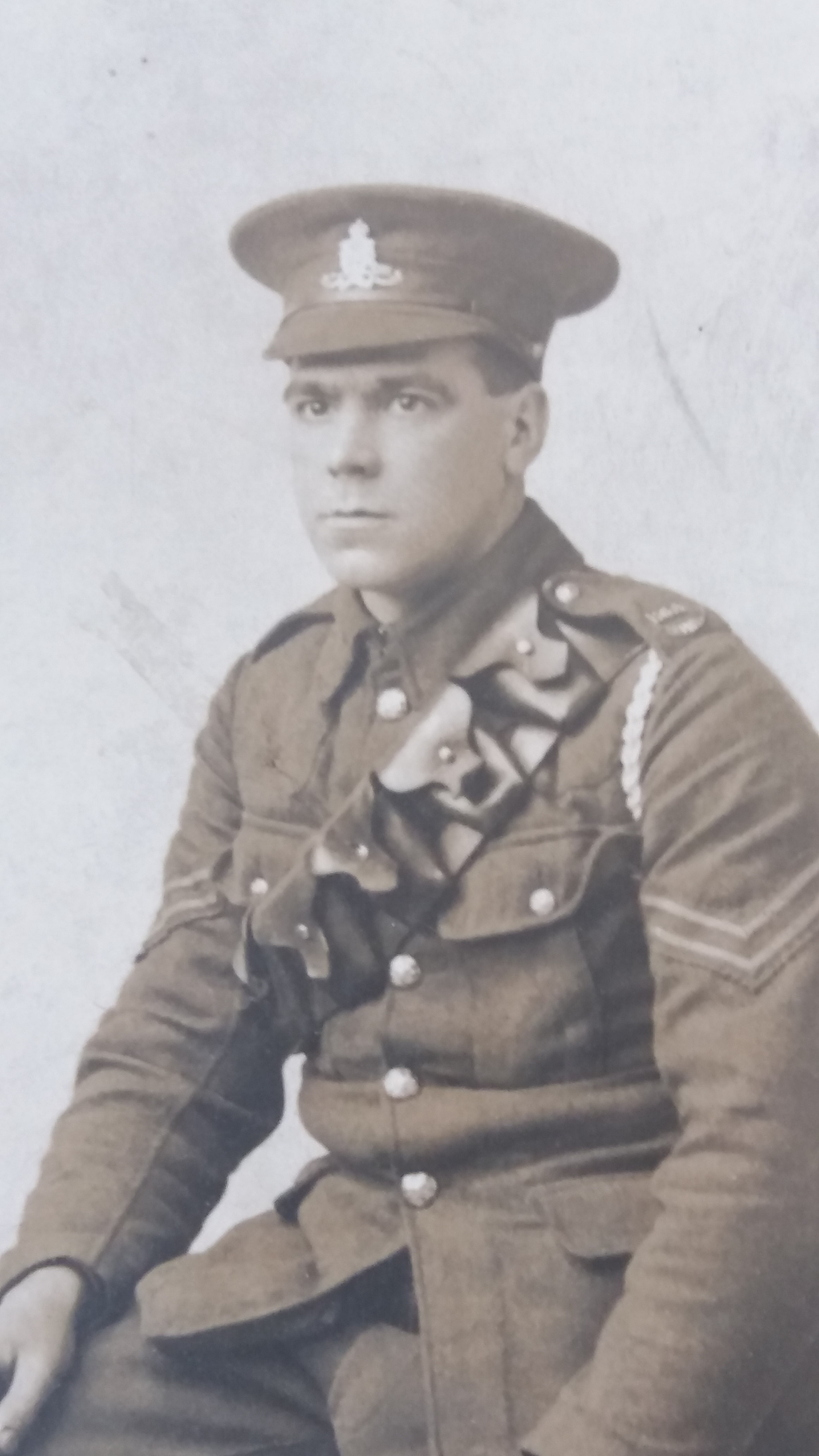Sjt
William Newton
Information about birth
|
Year of birth: 1890 |
|
Place of birth: York, Yorkshire, England, United Kingdom |
General information
|
Profession: Millers Labourer |
Army information
|
Country: England, United Kingdom |
|
Force: British Expeditionary Force |
|
Rank: Serjeant |
|
Service number: 312032 |
|
Enlistment place: York, Yorkshire, England, United Kingdom |
|
Units: — Royal Garrison Artillery, 1/1st Warwick Bty. (Last known unit) |
Information about death
|
Date of death: 04/10/1917 |
|
Place of death: Gunner's Lodge, Belgium |
|
Cause of death: Died of wounds (D.O.W.) |
|
Age: 27 |
Cemetery
|
Menin Road South Military Cemetery Plot: II Row: I Grave: 33 |
Distinctions and medals 2
|
British War Medal Medal |
|
Victory Medal Medal |
Points of interest 2
| #1 | Place of birth | ||
| #2 | Enlistment place |
My story
Serjeant William Newton served in 1/1st Warwick Heavy Battery, of the Royal Garrison Artillery. In October 1917 the Battery was attached to the 11th Heavy Brigade. This was an Army Brigade which at the time belonged to the Second Army. It was deployed where and when needed.
During the months of September and October 1917 the Second Army took part in the Third Battle of Ypres. The 11th Heavy Brigade was at the time engaged in the Battle of Menin Road (26 September-3 October), the Battle of Broodseinde (4 October) and the Battle of Poelcapelle on the 9th of October.
The 1/1st Warwick Heavy Battery was equipped with 60-pounder guns. It was engaged on harassing fire, shelling German Batteries. And when the infantry attacked they were to shield the troops with a creeping artillery barrage. During this period 1/1st Warwick Battery was positioned along Sandbag Track near Gunner’s Lodge, while it was targeting German positions in the vicinity of Polderhoek and Polderhoek Château.
In September and October 1917 the 1/1st Warwicks suffered twelve casualties, due to German counter-battery fire. Serjeant William Newton was one of these men. He was evacuated in the direction of Ypres, but died of his wounds on the 4th of October 1917. He was buried in Menin Road South Military Cemetery which was used by units and Field Ambulances.
During the months of September and October 1917 the Second Army took part in the Third Battle of Ypres. The 11th Heavy Brigade was at the time engaged in the Battle of Menin Road (26 September-3 October), the Battle of Broodseinde (4 October) and the Battle of Poelcapelle on the 9th of October.
The 1/1st Warwick Heavy Battery was equipped with 60-pounder guns. It was engaged on harassing fire, shelling German Batteries. And when the infantry attacked they were to shield the troops with a creeping artillery barrage. During this period 1/1st Warwick Battery was positioned along Sandbag Track near Gunner’s Lodge, while it was targeting German positions in the vicinity of Polderhoek and Polderhoek Château.
In September and October 1917 the 1/1st Warwicks suffered twelve casualties, due to German counter-battery fire. Serjeant William Newton was one of these men. He was evacuated in the direction of Ypres, but died of his wounds on the 4th of October 1917. He was buried in Menin Road South Military Cemetery which was used by units and Field Ambulances.
Sources 1
|
Army Troops. 11 Brigade Royal Garrison Artillery , (The National Archives, KEW (TNA), WO 95/539/3). https://discovery.nationalarchives.gov.uk/details/r/C14303 Further reference |
More information 3
|
Commonwealth War Graves Commission Database https://www.cwgc.org/find-records/find-war-dead/casualty-details/96714 |
|
Namenlijst (In Flanders Fields Museum) https://namenlijst.org/publicsearch/#/person/_id=5911030a-f850-4240-bf0a-550d0febbb1e |
|
Lives of the First World War (Imperial War Museum) https://livesofthefirstworldwar.iwm.org.uk/lifestory/3233552 |
